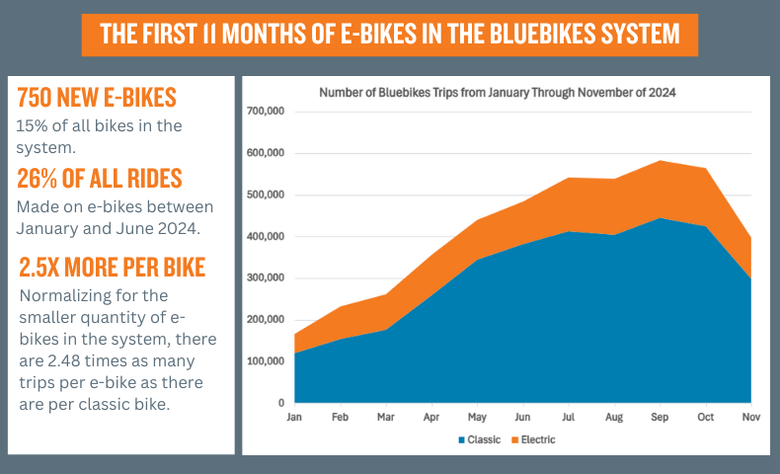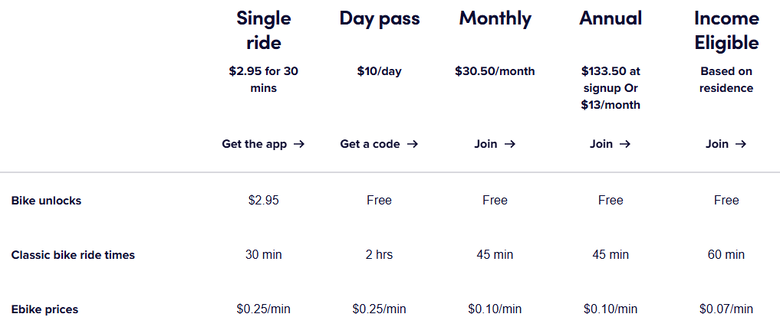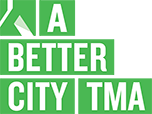Public and Active Transportation in Greater Boston
Shared Mobility refers to any form of transportation that is open and accessible to anyone for their regular mobility needs, like public transportation and bikeshare systems. Successful shared mobility networks are convenient, affordable, and efficient at moving people and, when done right, shared mobility can reduce roadway congestion, reduce greenhouse gas emissions, and enable greater access to and through the communities. In Greater Boston, the Massachusetts Bay Transportation Authority—The T—and active mobility network—Bluebikes—provide robust shared mobility options, with the two systems overlapping in significant and impactful ways.
Massachusetts Bay Transportation Authority
The Massachusetts Bay Transportation Authority (MBTA) is the agency that oversees public transportation in Boston and the surrounding communities. Collectively, the rapid transit lines (Red, Orange, Blue, Green, and Silver Line bus), the regional commuter rail, the local bus system, and increasing ferry options make up the MBTA. Sixty-six cities and towns in Greater Boston are served at some level by the MBTA, making the region one of the most interconnected in the United States. When it comes to shared mobility, the MBTA is a crucial asset and provides alternatives to driving that help to reduce GhGs and congestion on our roadways.
A Cornerstone Regional rail Network
The MBTA Commuter Rail (CR) is the backbone of regional shared mobility in Greater Boston, with 12 Lines and 135 stations from the North Shore to the South Shore, from Metrowest to Central Rhode Island, and everywhere in between. With 109,000 average weekday riders (MBTA performance metrics), it connects people between Boston’s Downtown and Gateway Cities like Haverhill, Lowell, Fitchburg, Worcester, Brockton, and launching in 2025, Fall River and New Bedford. Nine CR stations have rapid transit connections, eight stations (85% of Zone 1A) are colocated with at least one Bluebikes station 200 meters away, and six have Amtrak connections.
Commuter Rail service parallels many of the main automobile routes entering Boston such as I90, I93, Route 1, Route 3, Route 3A, and Route 9. Rail travel lets you bypass traffic, avoid costly downtown parking costs, and reclaim time to be productive, or relax. In addition to the commuting advantages, CR offers a $10 unlimited travel weekend pass to encourage exploration of the many recreational destinations in the region. We are happy to present some information as a resource to illuminate whether and how the CR might work for you.
MBTA COmmuter Rail Monthly Pass Caculator
For Employers
Our MBTA Monthly Pass Subsidy Calculator computes the actual monthly cost to subsidize MBTA passes for your workforce. Simply enter the number of employees you'd like to cover, their commuter rail zone, and the portion of the fare that your organization would contribute. The tool then provides the cost per pass and the total monthly cost to cover that number of employees, bringing budgetary clarity to the HR benefits process. We recommend using this tool to understand the ramifications of adjusting existing benefits or to justify the cost to launch a new program.
For Individuals
For individuals, this tool is also helpful to understand the actual monthly cost for a commuter rail monthly pass based on the fare zone of your nearest station, and the benefit that you receive from your employer. To use this tool as an individual, simply type in "1" for the number of employees to see the monthly cost for one person.
MBTA and BlueBikes—Complementary Options Working Seamlessly Together
Today, the Bluebikes system complements the MBTA in creating an interconnected and reliable shared mobility network. The Bluebikes system includes over 460 docking stations with over 5,000 bikes in circulation. The network spans 13 cities and towns including Arlington, Boston, Brookline, Cambridge, Chelsea, Everett, Malden, Medford, Newton, Revere, Salem, Somerville, and Watertown. As of July 2024, 71% of MBTA Rapid Transit Stops and 85% of Zone 1A Commuter Rail Stations had a nearby Bluebikes Station within 200 meters. Such robust co-location effectively provides a built in ‘first mile / last mile’ option for public transit since riders can hop off one mode and seamless board another. Don’t want to ride a bike all the way to your destination? Take it for a short ride and connect to the bus, subway, commuter rail or ferry for the rest of the way.
Could Bluebikes and the MBTA provide flexible mobility options for trips you regularly take? Check our co-location map below and imagine the possibilities.
The BlueBikes System
Using the Bluebikes App or physical key fob, riders can unlock a bike at any one of the 460+ Bluebikes stations and ride anywhere provided there is another station where they may dock their bikes. This bikeshare system is benefitted by the growing network of protected bike infrastructure that provides people on bikes with safe and convenient options throughout the region. View the map below to see the Bluebikes stations and an overview of Greater Boston’s bike infrastructure.
Since Bluebikes launched in 2011, the system has provided have taken more than 23 million trips. In the first eleven months of 2024, more than 4.5M million rides have been taken and, with the addition of the popular e-bikes into the system in early 2024, we are on track for a record ridership year.
E-Bikes Revolutionizing the Bluebikes Fleet
In early 2024, Bluebikes started to integrate electric Bluebikes into the existing fleet. They started with 50 e-bikes in January, distinguishable by their cool grey paint scheme, and by summer had reportedly launched more than 700. Between January and November, the e-bikes accounted for more than one-quarter of all Bluebikes trips despite making up ~15% of the overall fleet. We expect the e-bike option to continue this trend and to play a large role in bringing new riders to the bikeshare system.

Try it Out for Yourself!
If you’re interested in trying out Bluebikes for yourself, make sure to visit the Bluebikes website or download the smartphone app. From there, you’ll be able to create an account to easily unlock bikes in the system and check the live-updated map to see available bikes, stations with available docks, and e-bike charge levels.
Bluebikes Pricing
Bluebikes fill in the gaps of the MBTA transit system and can allow for greater flexibility in the routing and timing of local travel. For the regular user, they can be expensive for those who pay-as-they-go for bike trips. For moderate to heavy use, a monthly or annual membership might make good financial sense.
For the casual rider, Bluebikes charges a $2.95 fee to unlock a bike and includes 30 minutes of ride time. Any additional minutes are charged at 25 cents per minute. For those who purchase a monthly or annual membership, bike unlocks are free, and riders pay only 10 cents per minute after 45 minutes. Bluebikes also offers an income-eligible rate that includes free unlocks and extends the included ride time to 60 minutes.

The moderate to heavy bikeshare user can realize a significant cost benefit with one of these membership levels. We created the dynamic calculator below to help people looking to incorporate Bluebikes into their personal or organizational mobility strategy to ‘run the numbers’ and see if Bluebikes makes sense for them.
For employers with proximity to Bluebikes stations, we recommend participation in the Bluebikes corporate membership program, which offers a discounted rate and mechanism to subsidize Bluebikes memberships for your people. Our Bluebikes calculator allows you to quickly assess the cost associated with initiating or increasing your Bluebikes corporate membership for your people. For context, the employer cost per Gold level membership is just 28 cents per employee per day! Explore the Bronze, Silver, and Gold tiers below, and see how far a membership can go for your commuters.
Individuals should check with your employer to see if you have access to an organization-level membership. If not, the full retail rate for a monthly membership is $30.50, and for annual is $133.50.
Bluebikes Corporate Membership Cost Calculator



